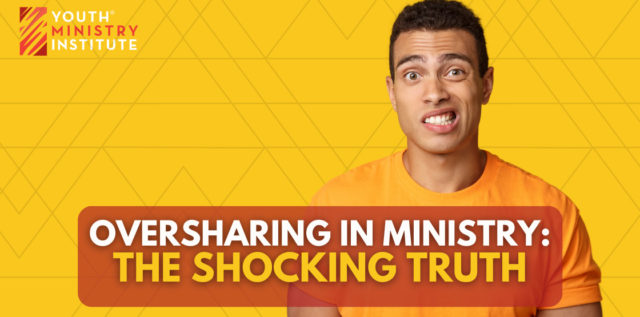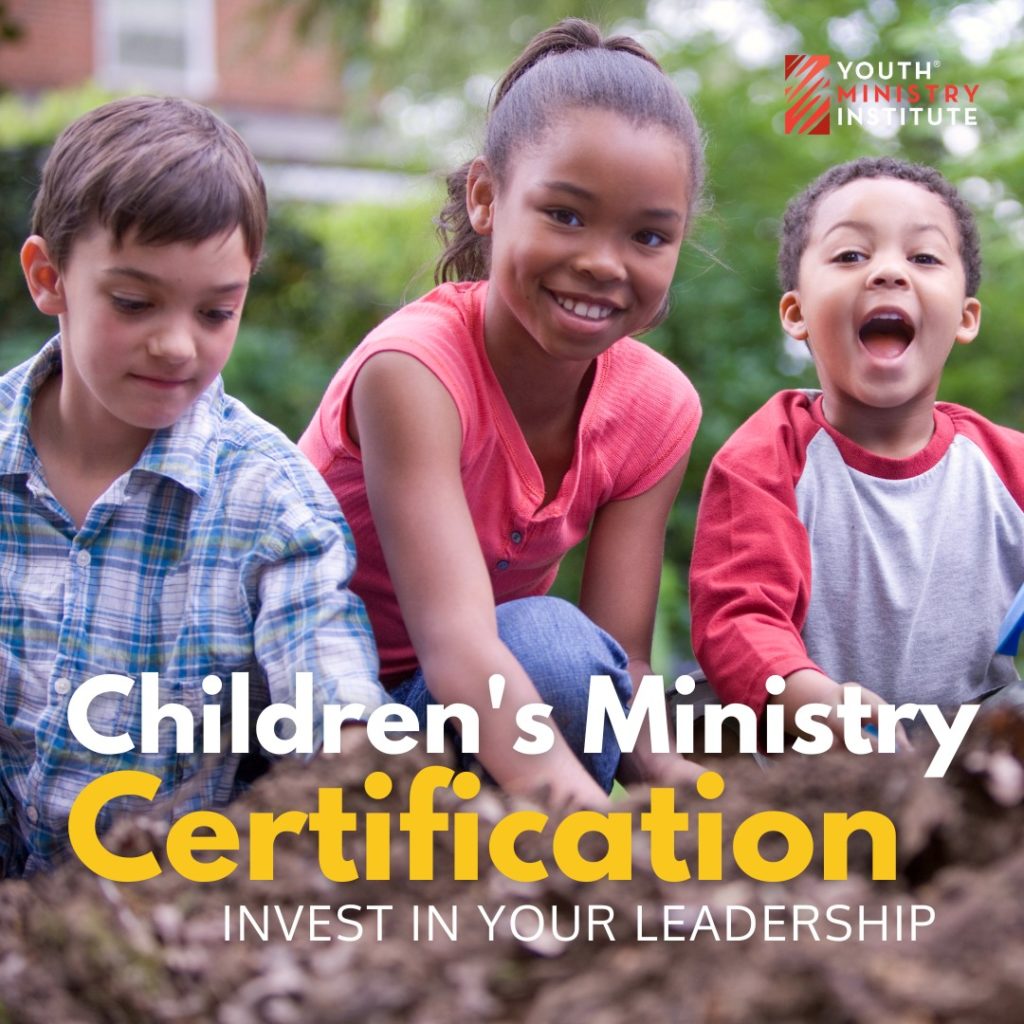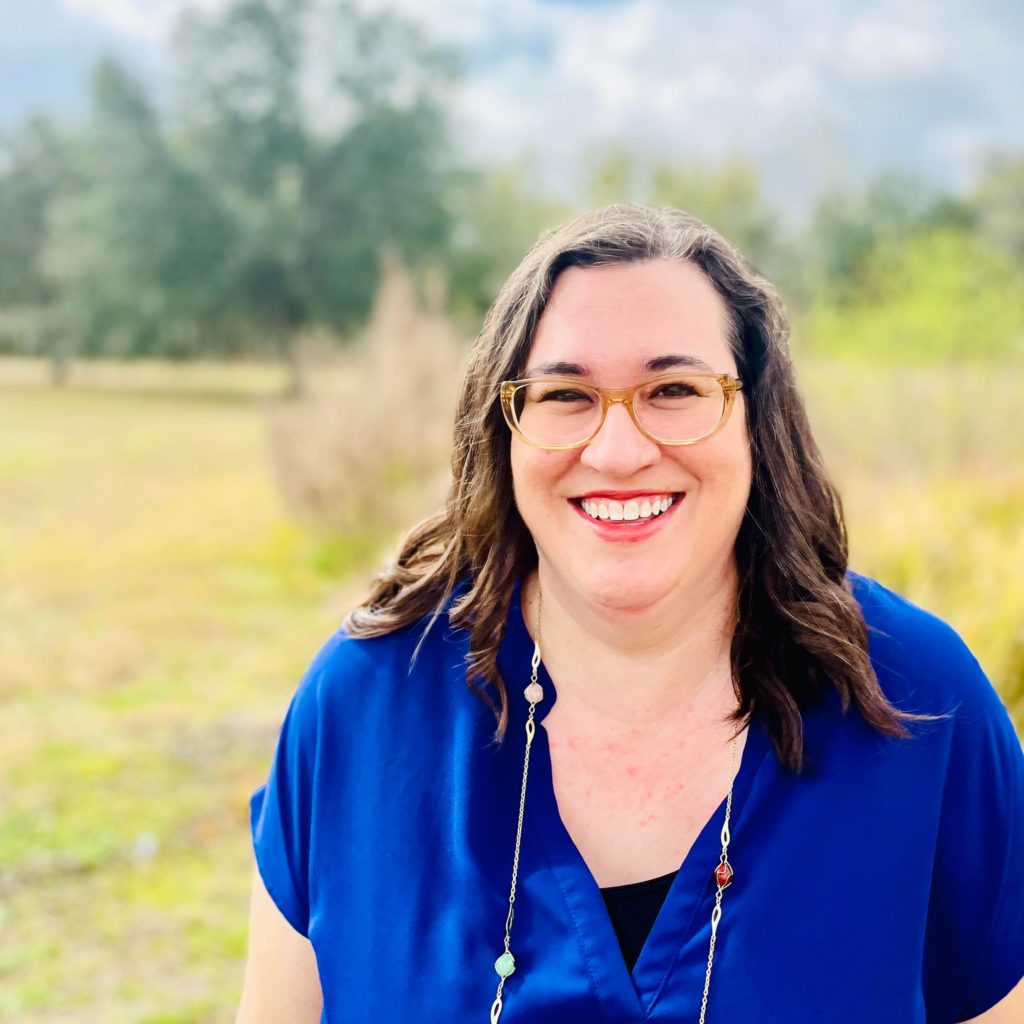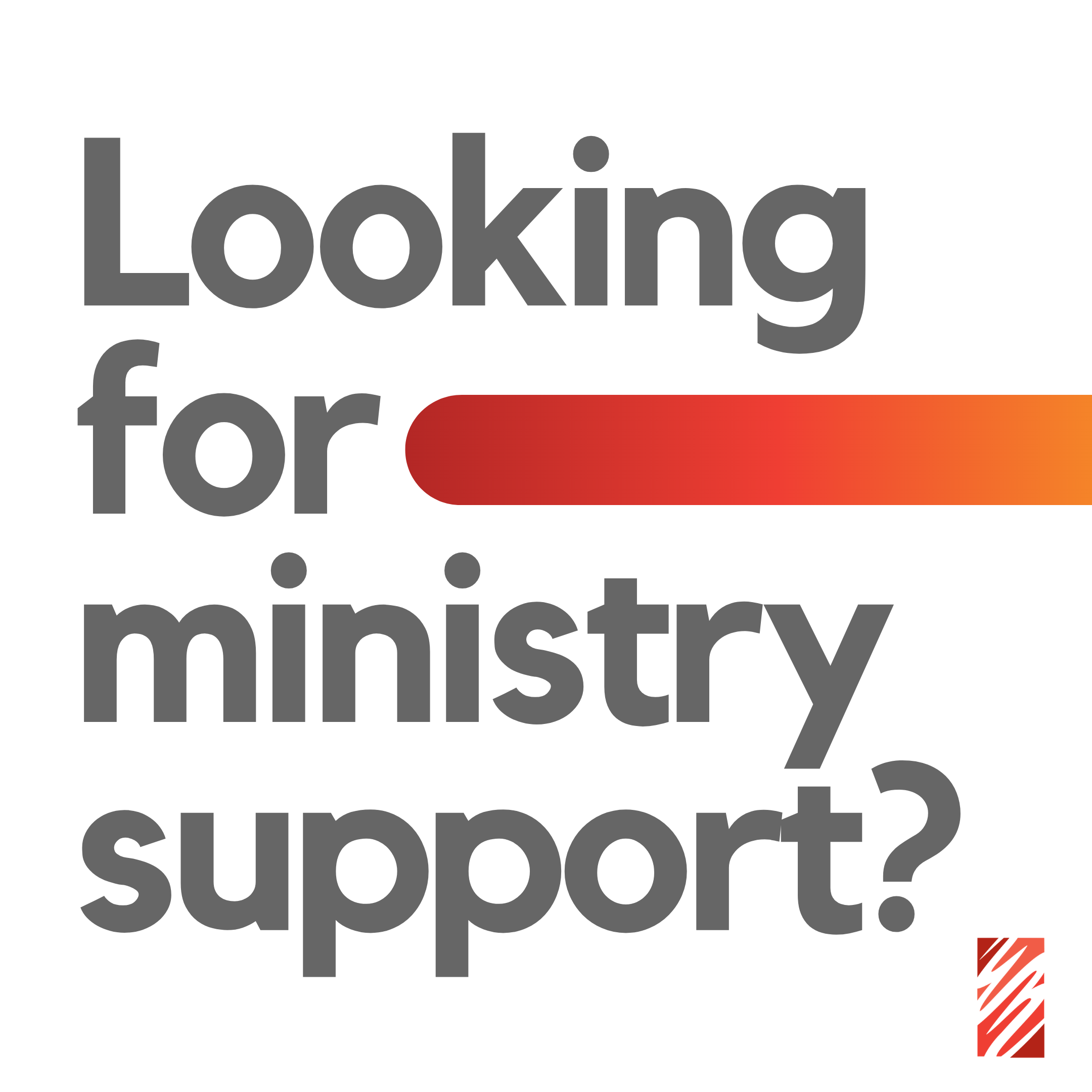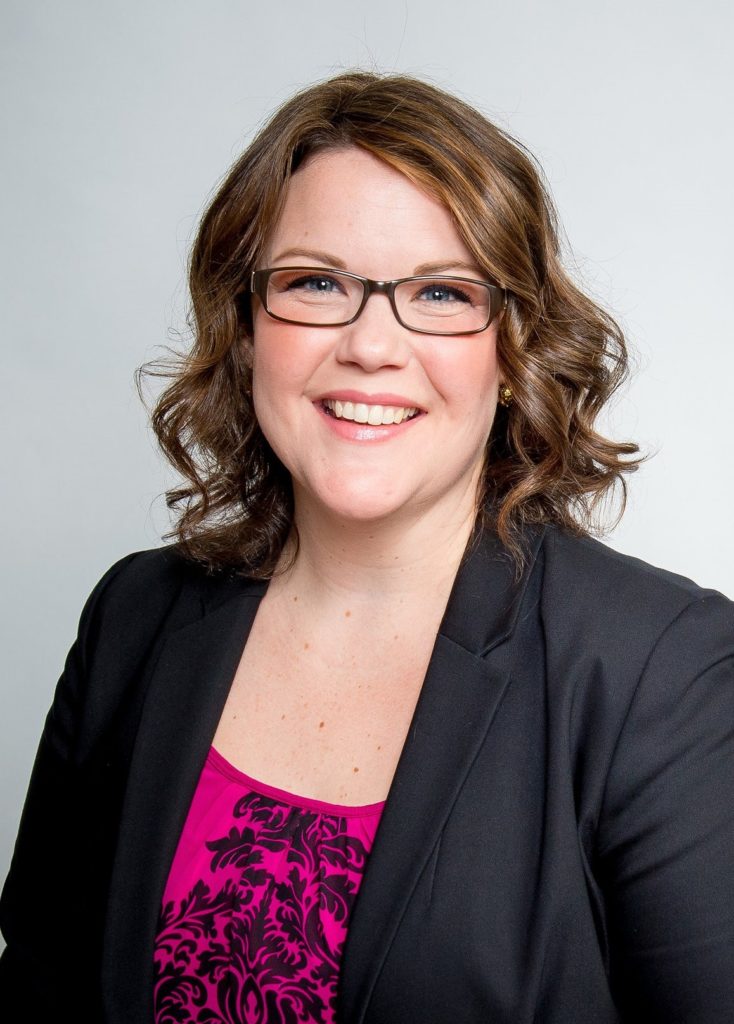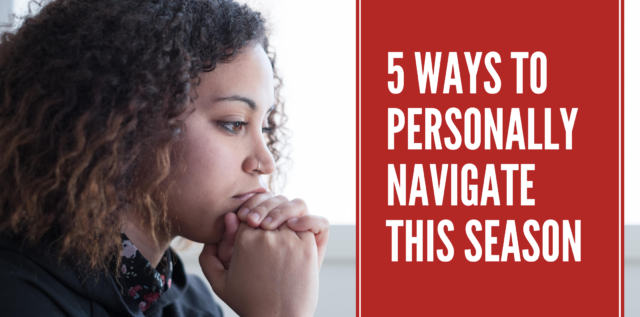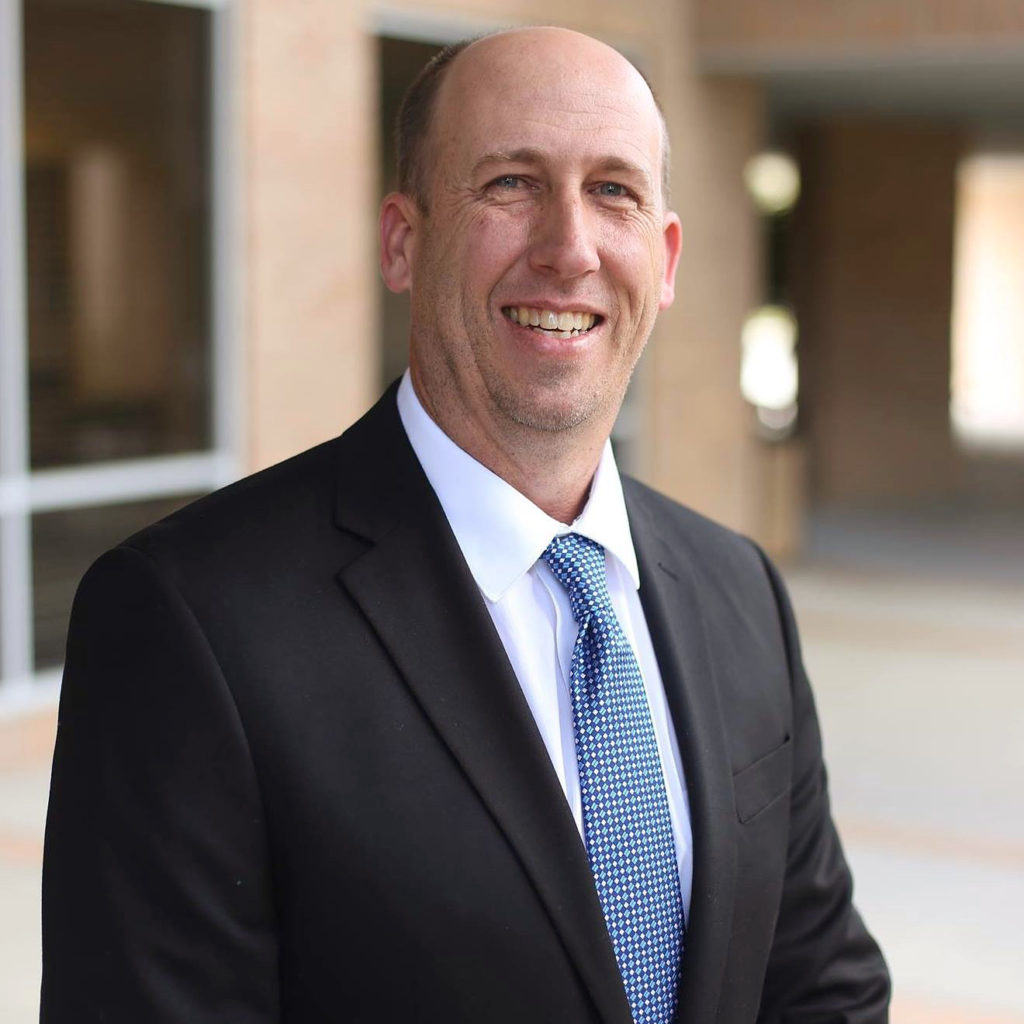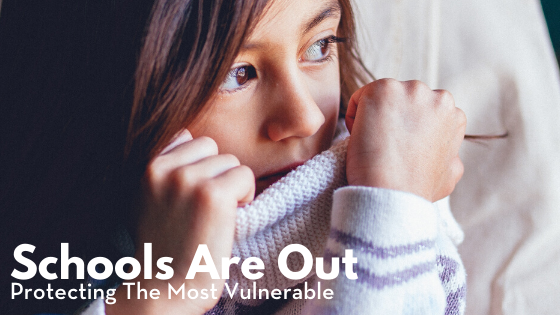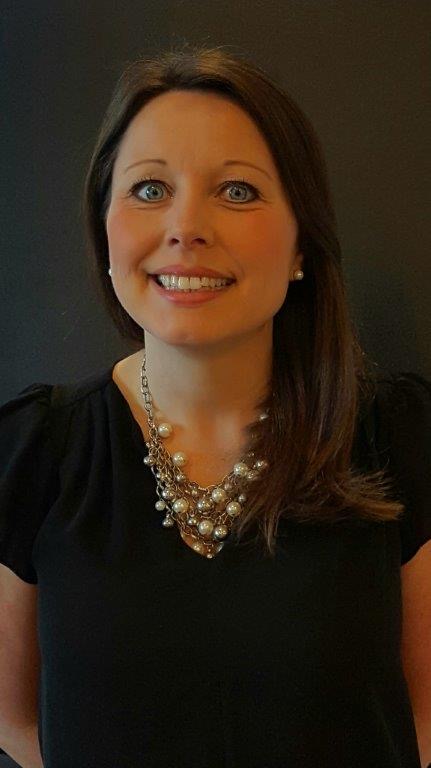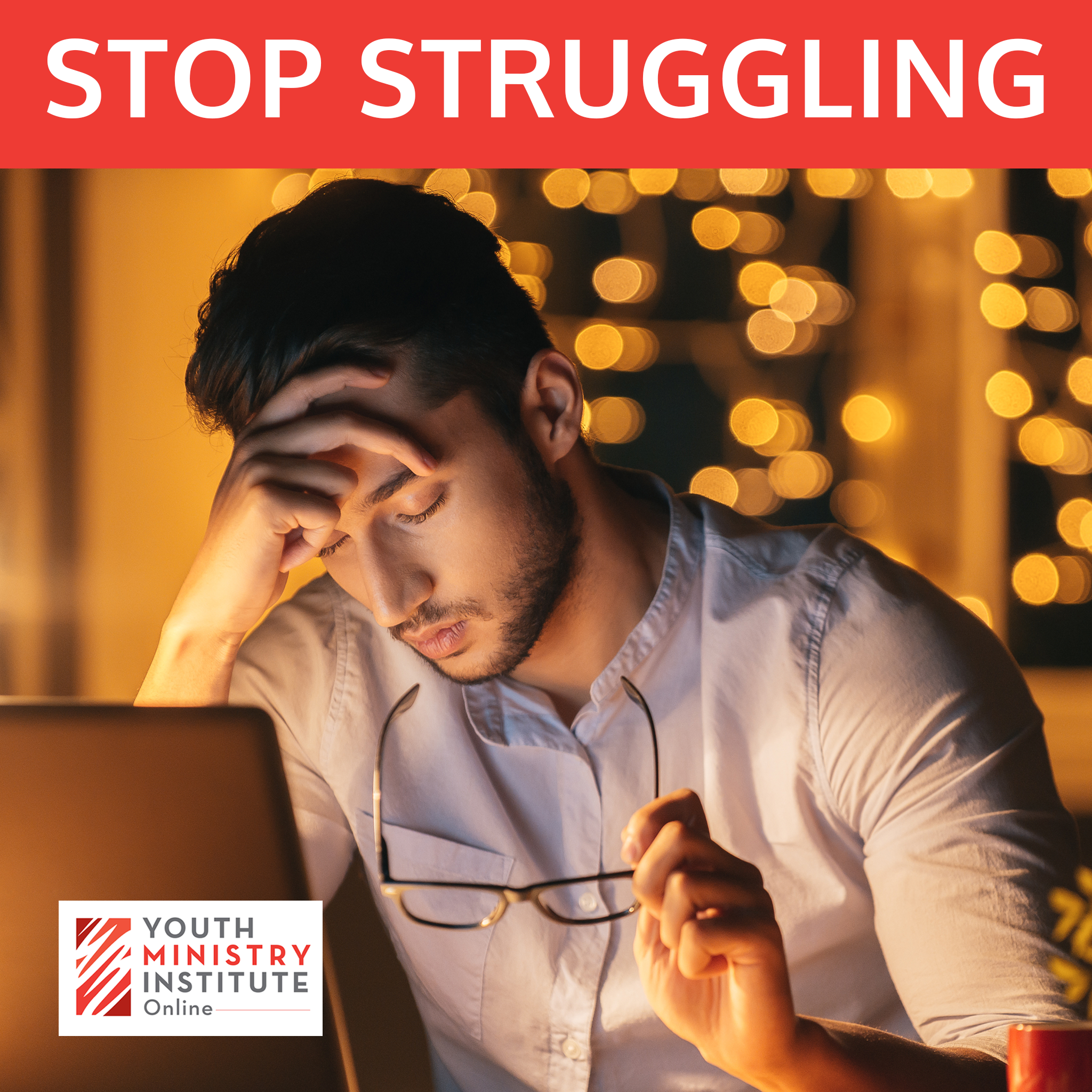In part one of this two-part discussion, a team of YMI experts (Steve Schneeberger, Kirsten Knox, Annette Johnson, and Brian Lawson) get together to discuss the church’s early response to social distancing, the pitfall that we as leaders can fall into, and finally what parents, students, and children really need from us in this season.
Join Our Community!
Subscribed to our emails
Join our Facebook Group
Resources Mentioned:
20 Free Zoom Games
The Common Rule – Spiritual Rhythms for Quarantine
Resource for Parents Homeschooling & Working From Home
The resource for parents was taken from the work of Becky Bailey.
Find the Youth Ministry Institute on Facebook, Instagram, Twitter, or Linkedin.
Find Brian Lawson on Facebook, Instagram, Twitter, or Linkedin.
Find Kristen Knox on Facebook or Instagram.
Find Annette Johson on Facebook or Instagram.
Find Steve Schneeberger on Facebook or Linkedin.
Support the show
Ashley: (00:01)
Welcome to the making sense of ministry podcast presented to you by the youth ministry Institute, a podcast designed to help you lead well in your ministry, transform lives and impact generations. Here’s your host, Brian Lawson.
Brian – host: (00:13)
Hey friends and welcome to episode number four of the making sense of ministry podcast. This is a podcast designed to help you lead well and your ministry transform lives and impact generations. In fact, episode four is a special episode all about social distancing ministry. The reality is that all of us are facing a new season of ministry and we oftentimes find ourselves confused or unsure about what to do and we really feel like we’re just stumbling in the dark, trying new things here and there. So we thought what better way to help you tend to bring in some of our own youth ministry instant experts and have a conversation with them about ministry now in this season. So today is a conversation among three of our experts at mine. Those includes Steve Schneeberger, who is the executive director and founder of the youth ministry Institute. Kirsten Knox, who is the senior director of ministry partnerships.
Brian – host: (01:02)
And Annette Johnson, the children’s ministry coaching coordinator. Between the four of us, we have well over 70 years of experience serving within local congregation, both in children and youth ministries and some may say or some have said that we may be the dream team to discuss this new season of ministry we’re in. I don’t know if that’s true, but I do feel like we have a lot to offer you. One more thing before we start friends. I’d like to let you know about our Facebook group. Our Facebook group is called the making sense administry ministry group and we would just love, I would love it if you would join that community. We would love to engage with you to hear what you have to say, to hear some of the questions that you have and it’d be an easy way for you to see all of the content that we are releasing linked to that group. We’ll be down in the show notes, friends now we head into part one of our conversation about ministry and times of social distancing. Well, welcome Kirsten, Annette and Steve. Uh, it’s good to have you all together for a conversation about this craziness that we find ourselves in.
Steve: (02:04)
Yup. Glad to be here. Thanks for having us.
Brian – host: (02:07)
So I’m just curious, uh, what’s the longest stretch you’ve gone so far without leaving your house?
Steve: (02:13)
Well, I’m the grocery shopper in my house, so it’s only been about three or four days at a time.
Annette: (02:19)
I’ve mainly been the stay at Homer and my husband is our tribute. Um, so I’ve gotten probably a good seven or eight days, but here recently I’ve started, um, going and picking up lunch from the school for my elementary school kids, which has been a great thing and a great help for the grocery situation. So I’ve been leaving the house now every day, but it’s a, you know, a 10 minute drive in the car and I don’t get out. So nothing very exciting.
Brian – host: (02:45)
I love that you call him the tribute. Here’s this
Annette: (02:49)
tribute. Can we send him out into the hunger games?
Kirsten: (02:54)
What about really four days? Um, I’m also the grocery shopper, so I’m getting and doing that piece.
Steve: (03:00)
We have an active neighborhood and we’ve every weekend we’ve had an event that we’ve uh, hosted, but it’s not at our house. People draw drawings on the sidewalk with chalk during the day and then people walk around and see them during the evening and then stay, you know, far away from one another and greet each other on the street. So we’ve gotten out of our house for that in our neighborhood, which has been kind of nice.
Kirsten: (03:27)
Yes. And I would say that too. I’m doing out every day walking the dog. I, they have been walked more in the last week. Then I think they get tired and I’m like, let’s keep walking loosen. We’ve exchanged the house for a little bit. I still need the other day of a dog, like hiding under the couch that leave me alone. I don’t want to take a walk.
Brian – host: (03:51)
Oh, that’s great. I think our dog feels exactly the same.
Steve: (03:58)
I should say. My wife and I run every other day, every other day, three to four miles, so, so we’re out of the neighborhood for that too.
Brian – host: (04:08)
Yeah. Make us all look bad. There you go. Steve.
Steve: (04:10)
Yeah.
Brian – host: (04:12)
As we go into this, I think the best place for us to start, we’re just going to have a conversation about what we’ve seen and what we’ve experienced. Um, and hopefully some of it is helpful to people serving in, whether it be youth, children or family ministries or some variation of, of all of those. So let’s start by talking about when we first found out about coven 19, then we first heard about social distancing and figured out that we were all walking into a new season. I’m just curious, what are some of the thoughts that maybe you guys had regarding ministry when that happened or maybe some of the thoughts that you think ministry leaders had when they first heard about it and heard about what was going on?
Steve: (04:51)
Well, that’s an interesting question for me. I actually am in a church where I also serve as a supervisor of the youth and children’s minister. And so I first heard about covert 19 like the rest of the world, heard about it early January. And, um, and thought this doesn’t look good, but I’m the kind of person that if somebody’s house is burning down, uh, I’m go straight into dumb denial and say, Oh, that’s not happening. We’re not gonna have a problem here. So I think for me it was a straight into denial, even though in the back of my mind I thought this is, this could be really bad, um, for more than just China or for the whole world. And, um, but we didn’t initially, uh, begin talking about things and PR until probably the end of February. And then, then we began to talk about what if, uh, scenarios, but it, but it didn’t get real until, well, I think like the rest of the United States, it didn’t get real until, uh, the NBA basketball player contracted it and Tom Hanks contracted it. And then all of a sudden the world seemed to spin out of control and we had to really start talking about, okay, this is what we’re going to do.
Brian – host: (06:09)
Well, you know, if you were talking about it as a team in late February, you were probably already ahead of most churches. I don’t think, from what I’ve heard, I don’t think most people even had it on their radar. I don’t know if Kirsten a net agree with that, but,
Annette: (06:23)
well, I was going to echo that. I think, um, as far as, um, for us and from a, from a lot of churches that I spoke to and just observed on social media, I mean, we knew it was happening and it was this thing in China and then it was this thing in Italy and in our homes are kind of talking about, man, I wonder if they, would you really think they would ever shut down school and in America? Like would that actually happen? And if they do, will they shut down church? Like kind of these like, Oh, that’s kinda, that’s, there just didn’t seem like that’s going to happen. And I think for us it was, it was really not until school started shutting down and that wasn’t even, I’ve been in South Florida and we weren’t even close to the first, um, part of the country to start shutting down.
Annette: (07:10)
So I started seeing and hearing from brands and other States that announcements were coming out, that schools were shutting down. And I sat down and started having some conversations with my husband who’s a pastor at our church about, okay. So I think we’re coming. I think we’re going to be next. You know, it’s going to be in the next few days. So what do we need to do? And I know that one of the earliest conversations that, um, I, I was having and I was encouraging other churches to have was sustainability. So as you’re starting stuff, cause I think we all kind of went into this going, I’m going to just do everything. I’m going to, I’m going to give so many resources to my families. I’m going to zoom every day. I’m going to Facebook live every day. I’m going to visit, I’m going to that and, and just really trying to say, Hey guys, I think this is going to be a marathon. I think we’re going to be in this for awhile. Um, our families are going to be overwhelmed. They’re going to be confused and scared and tired. And so what can we do to not add to that stress, but to relieve some of that stress? And what can we as individuals
Annette: (08:23)
while keeping care of our own mental health, um, you know, not biting off more than we can chew right at the beginning and then feeling like we’ve built something that we now have to sustain. Um, and I’ve also talked to a lot of people and given them, not that I’m the one to give them occurring permission, but encouraging them to give themselves permission to let go of things that they started and they realize aren’t sustainable, um, that it’s okay to say, you know what, I’m not going to Facebook live every day. We’re a month neat. I’m going to start, I’m going to start doing a Facebook live once a week, um, or whatever, uh, that it’s OK to, to change your mind on some things. Because I think at the beginning we all just kind of, we had this adrenaline pumping through our bodies and we just kind of jumped into the deep end. The adrenaline has worn off and just kind of settling into what, what does this look like now for the longterm,
Brian – host: (09:17)
Kiersten? I wonder, thinking about initial responses only, do you think you’re saying that this has played out how people thought it would or do you think it’s more intense or less intense? What are your thoughts on that?
Kirsten: (09:30)
Well, I think, um, in the beginning, right there is this panic. So I think when that was talking about how we threw everything at it, right? Like I’d get a fix up and I don’t think we saw it longterm particularly. I think as we have walked through it, we’ve recognized that this is longer. So I think in the beginning we really tried to do some, you know, we did a lot and now looking at how, how do we really reflect on what are the needs of students and families and how can we help them? But I would say it has shifted right from the very beginning response from ministry leaders to now there has been a chef and possibly healthier shifts. Uh, not that panic response, but I’ve got to fix this. I’ve got to figure this out, but looking at the long haul and how can I do that in ways that it’s helpful. So I would see that as shifted.
Brian – host: (10:19)
Yeah, I think I agree with everything you guys are saying. I think that there was an initial, I don’t want to say adrenaline, I think is the best word. I think I know you use that word. There’s an adrenal adrenaline and uh, we need to do this now and you jump in, but maybe we jumped in a little too much without thinking about the longer implications. What do you guys think that students and parents and children are expected of us at the beginning? I mean not now that they’ve seen us do things, but at the beginning, what do you think their expectations were of us ministry leaders?
Annette: (10:52)
From what I’ve seen and heard, I don’t think, at least from the, from the families of children, that’s kind of the perspective I’m coming from. I don’t think they had any expectations and I think they were kind of shocked when we started doing things. They were like, Oh, you’re still going to do stuff. I figured we were just done with that for awhile. You know, they, I think they just figured we weren’t going to do anything because everything was changing. So from at least parents of younger children, I didn’t see a lot of expectation from them at all. Yeah, I would agree. I, um, we’d do youth ministry at our church on a volunteer basis and when we started to think about doing things, I think they were there. They were surprised or happy surprise that they had really no expectations. I think their expectation was that we were just kinda going to close down and hunker down and we would see them back when we were back out and about again, the students at our church when they first met
Steve: (11:54)
on a zoom call, which was within probably 10 days of, uh, of when we shut everything down, they expressed a desire to get back together, like in person. And so, so there, I mean a certain amount of denial for them, right. This is not going to last very long. Uh, when can we get back together? So there’s an expectation of, of relief. Okay. We can be with each other on this call, but it’s not enough. We need to be with each other in person. And how do we do that? So it was really difficult for our youth ministers to kind of get them over that hurdle of and desire, um, uh, physically being together to, to say, okay, what do we come up with that will be, that will suffice or substitute. Um, in the interim knowing that this is temporary, we’re just not sure how long it’s temporary. And I think people have at least our churches settled into a pattern of, of expectation, um, that they didn’t have before cause they didn’t know what to expect.
Annette: (13:01)
I saw this in my personal life and then the families that I spoke to and what was interesting was it’s something I had heard from a friend I have who is currently stationed in Italy. And you know, they were kind of ahead of us as far as their shutdowns went. And she said for them the second week was the hardest. And that’s kind of what I saw in our families, um, was, it was like that first week was that adrenaline I was talking about. And, and as leaders and as families, I think everyone was kind of like, okay, we could do this, we’re gonna, we’re gonna do these, so we’re gonna do all these things and we’re going to have activities for our kids and we’re gonna make who make Plato and we’re gonna play educational games and we’re going to have a routine. And then the second week it’s like the wheels fell off and it was like, I can’t do that if I can’t keep doing this.
Annette: (13:47)
I’m exhausted. I’m sad, I’m mad. I just, I’m frustrated at the end of my rope. And then by the third week, not that it got easier, but it almost kind of became, okay, this is what we do now. And I, and I saw that in our families too as like we put things out on the internet. It’s like that first week they were like, they were, they were watching everything and listening to everything and clicking and liking everything. And then the second week it was like there was hardly anybody around. And then the third week it seemed to kind of settle into more of a spaces of like what I would expect, you know, people kind of coming in and out of things as we just kind of settle into what our normal is.
Kirsten: (14:28)
And that I think you hit on something that there’s a, uh, unanticipated emotional exhaustion that comes with all of them. We’re not physically exhausted. We’re not, you know, going from the kitchen to the bedroom is not physically exhausting, but, but emotionally this is really taking a toll on people and it’s, it’s hard for to put their finger on it. Uh, they just know they don’t feel good. Um, and to give people permission to say, you know, I, I’m emotionally exhausted because I’m sad. I’m mad, I’m scared. Uh, all of those things, and especially when it comes to children and young people, uh, to be able to give them that language that this is, this is scary. It’s scary in a very different way. It’s not scary like going to, um, a horror movie or, um, or you know, driving through a dangerous, uh, place or, you know, being in a natural weather disaster, um, where everything’s happening at once.
Steve: (15:36)
It’s, this incessant doesn’t go away kind of hidden under the sheets, fear that, um, that it’s hard to really get your arms around and so it doesn’t feel real. And many people said to me, this is surreal. Um, it’s not really happening. It feels like a movie, but, um, are really acknowledging the fact that okay, it is real and it’s okay that your emotions are run the gamut all in a, you know, 15 minutes. Um, that’s okay. Um, trying to figure out how to say that to children and youth has been a challenge. We have to, um, youth in our household, my sons are 15 and 16, and trying to get them to identify those kinds of emotions are really, really, really difficult and challenging. But, um, but the real,
Brian – host: (16:31)
yeah, absolutely. You know, I was just thinking back on my experience and, um, I, I had put out a few articles right at the very beginning to try to help people with this. And you know, like you guys were describing it got lots of interest and people were reading. Um, which was great and I hope that was helpful. But I remember being so exhausted that second week and even really into the third week, only recently do I feel like I’m not in that place as much anymore. But you know, there’s this thing in the business world is called like the second product syndrome. And so the first product takes off and it’s fantastic. It happened with Apple actually, you know, their, their first first computer was fantastic. And then the second one was awful. And it’s partly because the hits been so much energy in the first one and sort of forgot why people like the first one.
Brian – host: (17:24)
And so I think we put pressure on ourselves to say we did really well that first week. We put everything we had into it and people really engage. And then now engagement’s gone down a little bit. Um, and so we’re forgetting that it was new and people were engaging a lot because that, and then I know people who’ve now started to feel bad about themselves because they’re not getting the engagement that they got that first week and they’ve put that pressure on themselves. So you’re adding what you guys are describing and then you’re also adding the pressure you’ve put on yourself as well.
Kirsten: (17:56)
Just in this season right now is youth ministers and ministry leaders feeling discouraged, right? There’s this sense of what am I doing when people aren’t engaging in zoom the way they used to, right? Like we felt like we saw off that cliff a little bit and people’s attention and how they’re engaging and then a sense of real discouragement. So giving them permission to feel that, but also to recognize some of that is, you know, there’s a rhythm to this. Um, and then then thinking if they’re not engaging in those original ways that they weren’t the beginning, what are ways that we can engage them? What are alternative if they’re not clicking into zoom, right? Joining those kinds of things. What are ways that we can still connect with students and families and children, um, that look a little differently. So I have seen this since a discouragement and then trying to talk to them and encourage just some problem solving, right? Like what are other ways and that it doesn’t have to look the way we thought it would in the very beginning or where we found success in the very beginning of letting that kind of evolve as we walk through this situation.
Steve: (19:03)
And it doesn’t have to look like the next person’s a youth ministry because now we’re in an era or we’re all living on the internet and we can see each other filters because they happen. Everything that’s happening is happening there in a, in a public square. So, um, so it’s not, it’s not, uh, not that it was hidden before, but, uh, but people weren’t paying as much attention to what each other was doing. Uh, now he had all over the place and, uh, I coach a youth minister who like in the third week, he said, man, I’m just depressed. I see all these people that are my peers that are doing all these great things out there and, and I’m not doing those things and, and my kids don’t even like to meet on zoom. So what do I do with that? Um, so, so finding that, finding that contextual fit for the kids that you work with is really important and to stay away from the comparison trap. You know, that Facebook has, has had us in that trap for years now anyhow, so now not just magnifies itself.
Annette: (20:12)
I think remembering too that our families are feeling the same way we are. So we are discouraged because what we’re putting out isn’t maybe being engaged within the same way. And on the flip side of that, our families are feeling guilty that they’re not engaging. I’ve heard this from so many families with especially elementary age kids, as school got started back up and kind of, you know, throughout the country, it was at different points that that online school kind of got relieved. But it was, you know, at least at the beginning for most people they weren’t worrying about school. So it was like the church stuff kind of gave them something to do and then the school stuff got released and that became the priority. And they were stressed out and there were kids in homes that were not doing well or unable to do it, or you know, just, just all those emotions that we were just talking about.
Annette: (21:06)
And so the church stuff got put on the back burner because they just couldn’t take another thing in. They were, you know, they were just at capacity and then they feel guilty. Right. Oh my gosh, I didn’t get my kid on the zoom call. Oh, I should have, you know, Oh, we didn’t open the virtual lesson. We didn’t watch the video. We didn’t, we didn’t, we didn’t. And so reminding ourselves to that my only, we need to give each other permission. We need to give ourselves permission to, to feel our feelings and to, to back off and to do whatever we need to do. And on the same pride we need to, to realize our families are in the same situation we’re in. And so just, just having that empathy for both sides that they may not be engaging because they literally cannot right now. It’s not that they don’t want to, it’s not that they don’t appreciate what we’re putting out. They just, they can’t, they don’t have the bandwidth right now to handle another thing.
Brian – host: (22:05)
And I know some States the schools have canceled and other States have gone to online. Um, so I know there’s a little variance there, even within Florida County to County does things differently. Um, and so I know there’s a lot of adjustment that has to happen with that. So thinking about the season we’re in now, so we’ve, we, we have to acknowledge that we’re in this, we’re not going to change it. It’s the reality we have to face. What are some things that we can give to parents that they may or may not engage in and we’re not gonna make them feel guilty about either way. Uh, but what are some opportunities or things that we can give parents that you guys would think has been beneficial for them right now in this space?
Kirsten: (22:47)
That’s a great, it is. And one of the first things that we can do for them is really be a source of encouragement to them. I mean, it’s exhausting for parents and families in the season and really for us to be that voice of encouragement and cheering them on and believing in them and really being that for them, I think is very powerful.
Brian – host: (23:08)
Yeah. I saw, um, I’ve never, I’ve never read this book, although I’m, I may read this book now. Um, it’s called the common rule habits of purpose for an age of distraction. Um, but I saw they, they had put a risk resource out that was a resource for parents, right? To do with their family, to try to help them maintain a sense of order and purpose in their life, in the midst of the chaos. And one of the things that I grabbed out of that resource, uh, was a liturgy for it to do with your children before bed. And it’s very simple. But I, I, I just loved how profound it was. And it goes something like, you asked to the child, did God make you? They say, yes. Does God love you? They say yes, will God protect you? They say yes.
Brian – host: (23:57)
And then you say you’re right. And then you remind them that the God that created everything knows you and loves you and will be with you. I’ll protect you. And then we pray together every night. And so I’ve done that every night. And so the kids joke, they’re like, yes, yes, yes, I know the answers, but it’s my hope to kind of, you know, calm them if they have any sense of anxiety in, in this moment. But I just found that simple liturgy to actually be very beneficial. And so we’ll, we’ll put a link to that in the show notes, but there’s some other things in there. But that was the piece from that book that I really thought was fantastic
Annette: (24:29)
and I’ve seen some great resources out there for helping parents, which Steve alluded to at one point, to have some of the language to talk to their kid because that’s not something that every parent really knows how to do. Um, they don’t have the language to, um, to speak through the emotional components of this with their kids. So I’ve seen some great resources that, that gives parents some of this language to help talk to their kids through what they’re feeling and help their kids identify what they’re feeling. Some things like, you know, fear may look like anger. It may look like fighting with their siblings. It may look like irritability. It may look like tiredness. It may look like not sleeping enough. That kind of kind of what things you can be looking for in your kids. Um, and then to help them identify it and name it, because I think there’s a lot of power in being able to kind of embrace what you’re feeling and know what it is and work through it.
Annette: (25:37)
Um, I know that I’ve done that quite a bit at my house, especially with my teenagers. Um, you know, when they say I’m bored, I say, I know you’re bored. This is hard. And we kind of talk through what, what is board and, and what can we do to fix it. But what more could board be? What else could we be feeling, kind of thing to just help us identify where we are and, and sit with it when we need to and work through it when we need to. But I think for a lot of parents, having that language, um, can be really powerful for them. Yeah. Our children’s Nestor, um, is a big fan of Becky Bailey who’s, um, a professional education expert and uh, and she read some things on her site and uh, and then paraphrase them for parents. Um, and I think that was helpful in terms of how to adjust to having your children at home and, and school and how do you balance that? What are some tips? So she came out with a, a sheet, a worksheet, those five tips that again, she condensed
Steve: (26:44)
in paraphrase. So it was easy for parents to digest. So I think, you know, finding those kinds of things that are, that are good things to pass on to parents, uh, but also being aware enough to know that they have limited time and how do we, how do we make those into bite sized chunks so parents can, can read them and actually apply them.
Brian – host: (27:08)
Yeah. Steve, could you, is there any chance you could get ahold of that document so we could share it in the show notes?
Steve: (27:15)
I have the document that, that our children’s minister, uh, prepared and we could make that available.
Brian – host: (27:21)
Okay. And then in that, if you have any of those that you mentioned, that’d be great as well.
Annette: (27:25)
Absolutely. Yeah.
Brian – host: (27:27)
You know, it sounds like this, I hear you guys saying that this season is less about teaching and more about processing. Would you all agree with that?
Steve: (27:37)
Yeah. Yeah. It’s interesting when you think about what the role of the church is, you really think about discipleship, right? And, um, and, but I teach at, uh, Florida Southern college, uh, youth ministry classes. And, and right now the class I’m teaching is, uh, teaching and learning styles, uh, for youth ministry. Um, and we, we teach, uh, Maslow’s hierarchy, uh, which means you have to have certain needs met before you go to other needs. And, um, and some of those are security and safety and all of that before you even get to discipleship. So it’s interesting now, or the church is having to wrestle with this, these basic needs of I don’t want to overblow it and, but it’s, it is survival, right? How, how are we going to survive this crisis? Um, and for some people, are we going to survive this crisis? How are we going to come out on the other end? And that’s all consuming. Um, so the church all of a sudden takes a step back down into the lower forms of Maslow’s hierarchy and say, okay, we really need to think about that. How do we help, um, people, uh, get through this? Um, and there’s discipleship to be had for sure. But, um, but it does take somewhat of a back seat for us in order to take care of people in, in a real way that, that I believe Jesus would take care of people in situations like this.
Annette: (29:12)
Yeah, I know it’s an overblown analogy, but that, you know, fuse a lot with parents of young children and incense, especially of the airplane, giving you the instructions to put the mask on yourself before you put it on your child or your, you know, your dependent. That’s with you. And I think that for, for children and family ministry right now, that’s a lot of what we’re doing is helping the parents put on their oxygen mask because right now they’re the only thing their children have their it, they are hundred percent of it all the time. And um, and so, so helping our parents to access an oxygen and an oxygen mask through, through different means, through prayer and through like, like C-SAT, just helping them to take care for those basic basic needs in their life right now so that they can in turn, breathe life into their children.
Kirsten: (30:06)
And you watched us just right, doing things for them, right? We are, we oftentimes feel very comfortable with doing. And I think right this season is really about being, being with them, being present with them, helping them navigate that versus doing all the time. And I think there’s also some uncomfortability with that because we feel comfortable with doing so as leaders, we’ve had this shift that, but also being able to think how can we do the present, um, with our families and our students and our children and also recognizing that for different families they are experiencing this differently. Right? For some people this is a thunderstorm and for some people this is like a category Bob hurricane that how they have been affected is differently. And so adapting to that and really being present with our families and students and the variety of where they are, how they are experienced in this and how this is impacting them.
Steve: (31:04)
There is some incarnational beauty in all of this. You know, just being present, uh, with people. Uh, I see all the jokes on social media about how long marches and how long April will probably be, you know, it just feels like it goes on and on. It’s, we’re not going to get to the end of the month. Um, but life has legitimately slowed down and we’re in conversation with people in our family more often. That conversation, at least in our house, uh, can get deep at times. Now we don’t have as many things to talk about. Um, but in a way that actually pares it down to, we focus on what’s important right now. And so that, uh, being in the moment with people, um, and uh, and the idea of incarnational ministry that you’re in the moments with people as opposed to trying to drag people to a different moment or encourage them in their growth, you’re just being with them. Um, uh, Andrew route calls that place sharing. We share people’s place where they’re at right now. And, uh, and I think that’s a beautiful imagery of what the church should be all about right now. Um, and if you really read Jesus well and the gospels, well then, then Jesus was the ultimate place share. He was in moments with people, um, wasn’t really dragging people from place to place. He was in the moments of the, of that moment
Steve: (32:41)
and, and recognized where people were in that moment and, and taught in that moment and, and sat with people in that moment. So that’s what we need to do. And I think that’s part of the beauty here. Right? And then thinking about, I mean, the question I keep asking myself is what am I learning in this season that I can take with me in the next season? Um, and particularly in sense of ministry. And I think the power of being present with people and being that placeholder for them so much. When life gets busy and you think, well, we get back to normal and we’re doing, doing, doing and have all these things that are going on, um, how is our ministry adding to that? And how can we learn in the midst of that really when everything gets back to normal, whenever, whatever. That was like for us to really focus on being present because there’s power in that and whatever season you’re in.
Kirsten: (33:33)
Right. Um, and so being able to do that in this next season of adding that element in, what might that look like and youth ministry, what might that look like in children that are streets? How do we do that with people and not feel the pressure to do and to push them to different places or different things I think is one of the values that I’ve been reflecting on of what, what might that look like? Cause they’re great value there. And I think for me the struggle sometimes is a value being present with people. And there are times when you do that that you feel like you haven’t done enough or I haven’t, I need to be doing something for people. And reshifting the way we think of being present for people and walking alongside them is very powerful. And as is doing something when it doesn’t always feel like was task right.
Kirsten: (34:25)
Then when we can do those paths, we feel a little bit more productive or effective. And seeing the effectiveness of like prayer oftentimes is in this season. May we see the effectiveness of being present and be able to carry that into the next season. Kiersten, you said when things go back to normal and one of the things I’ve been reflecting on what you were kind of intimating this is that maybe we don’t need to go back to what was normal. Right. Lately a lot of our old normal was broken and that goes for the church and for family structure and for the business world and for so many things. Um, and so, so asking, you know, what, what do we not need to, to bring back? What, what can Jeff go ahead and not resurrect when the new season comes. Um, and I think you, you really hit the nail on the head is that we, we are coming from a place of so much, so much being so task oriented.
Annette: (35:24)
Um, that idea of you come home from work and say, I didn’t get anything done today. All I did was talk to people. I didn’t check a single box on my list and, and I have to remind myself and my pastor husband quite frequently of sounds to me like we did a lot today if what we did was meet people and talk to people. Sounds like we did a lot of ministry. Um, we, we did a lot of what Jesus was doing today. Um, and so, you know, just, just kind of asking myself as I, I crave and I yearned for normal, whatever that means to, to allow myself to grieve what maybe needs to no longer be normal and, and allow it to stay in the past and, and what, what should the new normal look like? Yeah. Cause I really see this season, right?
Kirsten: (36:15)
This can really be like a reset for us and it’s going to be long enough that we can say, Hey, let’s reset. What have we learned that has been very valuable here? What have we done? What has really met the needs of our soul and this season? Um, that weekend bring and reset. Sorry. Yeah, I think that’s a great, um, question, right, to think about what don’t I need to add and really gives us an opportunity to reset and really view that which just means it was very, it was one of the beautiful things that come out of this.
Steve: (36:45)
Well, one of the other beautiful things that comes out of this experiences is new ways to do ministry that, um, that now we’ve trained people to be in virtual spaces and to actually be comfortable in them. So, uh, I don’t know this has happened in all places, but uh, but we’ve seen new people come in to these virtual spaces that we never saw in the actual space. Um, so does that mean that there’s some comfort for some people to be there? And uh, so there I think not to create more busy-ness, but maybe create more simplicity that OK, I, I can create this space that somebody doesn’t have to get in their car and drive to me anymore. They can just be here with me in this moment. Um, uh, and save some time, economize other time a little bit more. Um, and still have a, the same similar kind of experience that they would have had it in person. So I think there’s an opportunity in a lot of ways. I don’t think we’re going to go back to normal. There’s going to be a new normal that’s going to come out of this. And a lot of ways
Brian – host: (37:56)
Man friends that was such a rich and deep conversation and that was only part one, part two. We’ll we will release in a few days. Uh, so be looking out for that. As for our quick win a minute today, here’s what I have for ya. Uh, last week we released 20 free zoom games. These are games that you can play on zoom or really any, uh, any digital meeting space, um, that will be free for you to use. And this is a great resource. So we want to share with you, uh, cause we know how exhausting it can be to always try to find another game or another activity. And so we thought this might give you a leg up and may help you so you don’t have to search so long. So that a link to that resource is down in the show notes. And until next time, friends, we are praying for you and we know you can do this and we believe in you. If you enjoyed this episode, please share this with your friends. Leave it a rating and a and until next time, friends, I hope we helped you make sense of this thing we call ministry.
Ashley: (38:58)
For more information regarding coaching, consulting, job placement and online courses, join us at yminstitute.com.



